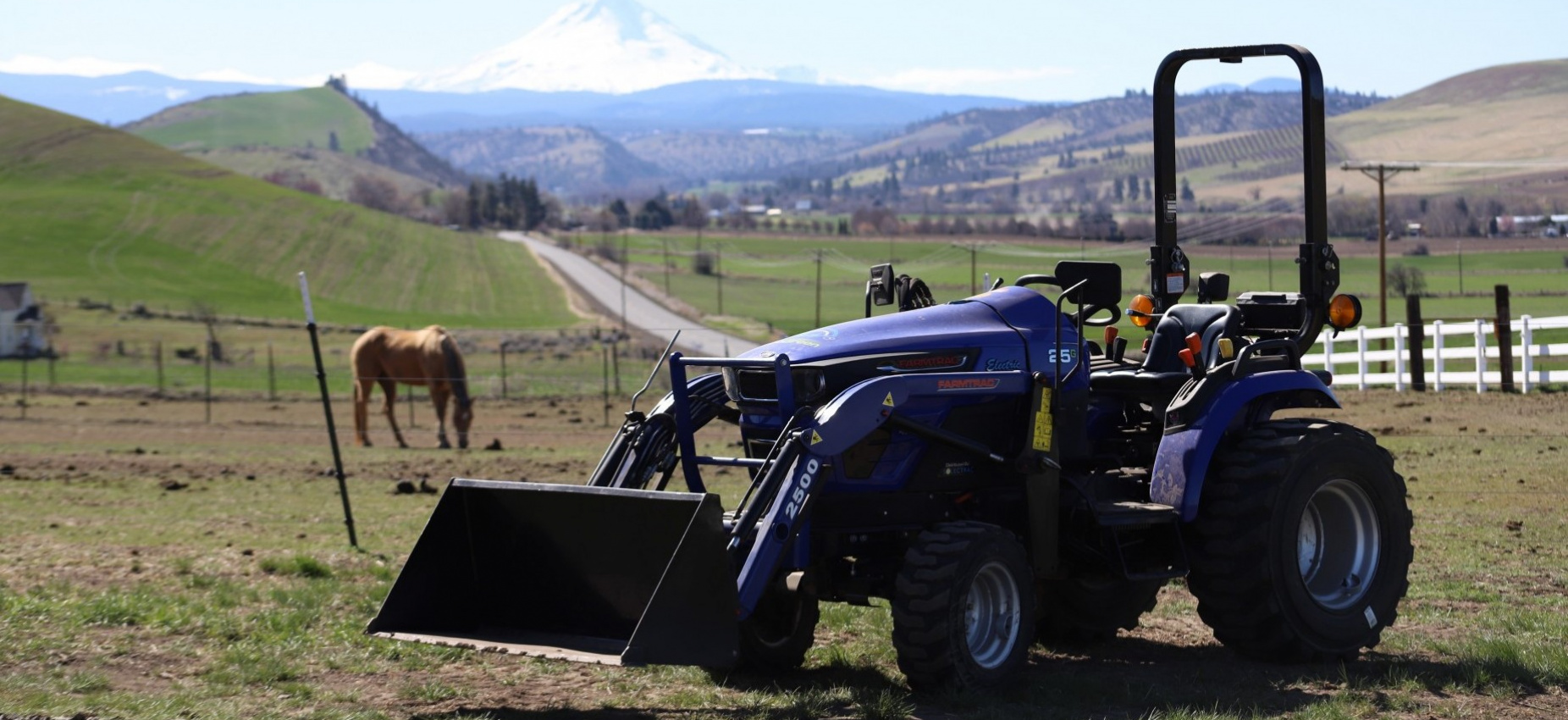Electric Agriculture
Sowing the Seeds of the Future

Sowing the Seeds of the Future
Oregon's First Electric Farms
Forth, with Sustainable Northwest, Wy’East RC&D, and Bonneville Environmental Foundation, launched Oregon’s first electric tractor demonstration to evaluate and demonstrate the potential of this new technology in 2021. The team has secured funding for a total of three electric tractors to be shipped to Oregon for initial testing and configuration.
Contact Forth Program Manager, David Skakel, for more information.
Showcasing Electric Tractors, Trucks and More in Rural Oregon
Forth's Ride and Drive event in The Dalles, Oregon, showcased electric cars and trucks, e-bikes and low-speed GEM cars, an electric tractor, e-UTVs and more.
What Are Electric Tractors?
How are they different from traditional tractors?
Electric tractors are powered by electricity rather than diesel. They don’t release carbon emissions which contribute to pollution and climate change. They are capable of performing at least as well as other tractors with the same horsepower.
Where are electric tractors a good fit?
Today’s electric tractors have shown promise on a variety of farms. Vineyards and locations that currently use smaller tractors are a great fit for electric tractors. In the next few years, e-tractors with stronger (higher HP) motors and bigger batteries will be available for locations that need more power and even longer run times.
Forth's electric tractors
Forth currently owns two e-tractors that are being rotated in several farms around Oregon for farmers to test out. The current tractors are the 40HP Solectrac e-Utility and the 30HP Farmtrac Compact Electric Tractor (CET).
How does it charge? How long does that take?
The tractors plug into a 220-240 volt outlet which is frequently already built into barns as welding plugs. Tractors are typically stored in the same location every day which is convenient for charging them after a workday. The charge time is generally around 4 hours based on current technology.
How long do they last in the field?
Depending on the tractor, the size of the battery, and the load it’s pulling, they can last up to 12 hours in the field. Different models have the option of swapping the battery.
Benefits
- Save money on maintenance and fuel
- Less noise
- No exhaust: no more breathing in toxic diesel fumes or worrying about the long-term effects of inhaling these toxic fumes
- No carbon emissions/ more sustainable
News
Two recent studies show the economic, health & climate benefits of electric tractors. Read Oregon State University's study here and The Cadeo Group's study here.
Media Coverage:
Grounded: An Oregon Department of Energy Podcast, "Oregon Cherries and Tractor Tech", June 2024
The Capitol Press, "Growing electric: Farmers, researchers and non-profit groups experiment with e-tractor", May 2022





